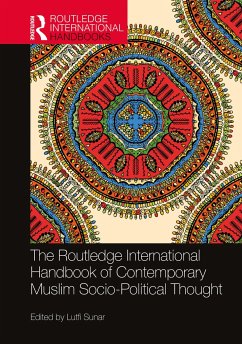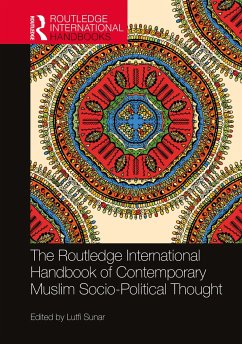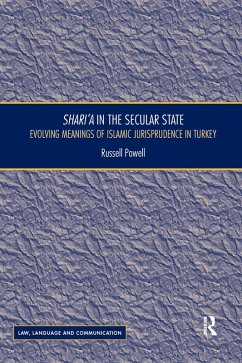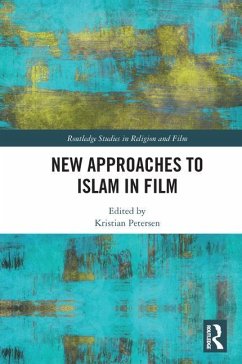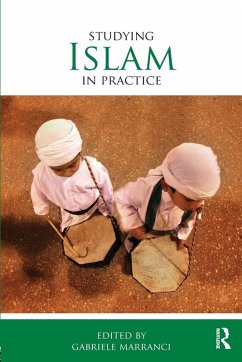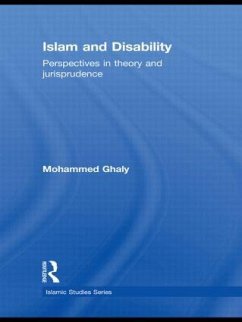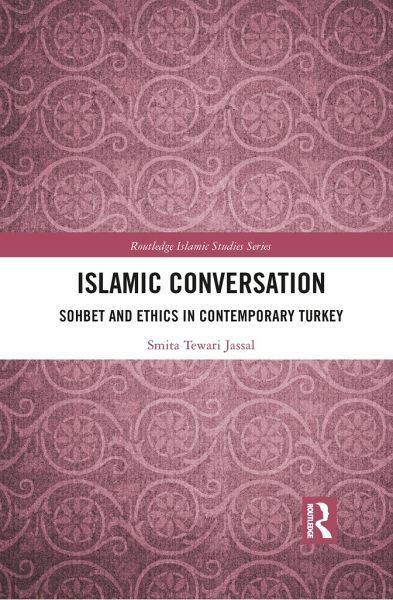
Islamic Conversation
Sohbet and Ethics in Contemporary Turkey
Versandkostenfrei!
Versandfertig in 6-10 Tagen
45,99 €
inkl. MwSt.
Weitere Ausgaben:

PAYBACK Punkte
23 °P sammeln!
The book evaluates on-going ethical conversations to learn how emotional communication is received, teachings are internalized, and a religious world-view is brought to life. Exploring how religious values saturate people's consciousness to induce subtle shifts in moral and ethical sensibilities, this book is about people's practices that illuminate how Islam is lived.Based on fieldwork conducted in Ankara between 2010 and 2016, the study enquires into people's ethical, religious, and moral motivations through the use of the ethnographic method and "thick description". Conversations and interv...
The book evaluates on-going ethical conversations to learn how emotional communication is received, teachings are internalized, and a religious world-view is brought to life. Exploring how religious values saturate people's consciousness to induce subtle shifts in moral and ethical sensibilities, this book is about people's practices that illuminate how Islam is lived.
Based on fieldwork conducted in Ankara between 2010 and 2016, the study enquires into people's ethical, religious, and moral motivations through the use of the ethnographic method and "thick description". Conversations and interviews with officials, community leaders, students, entrepreneurs, professionals, and blue-collar workers were subjected to close scrutiny to foreground societal change and churning. To capture perspectives absent or deliberately overlooked in mainstream public discourse and scholarship, fieldwork was conducted in locations ranging from homes, offices, and university dormsto the shrines of saints. In listening closely to how people talk about their religious practices, the book addresses the question of how Islamic subjectivities are being forged in Turkey. The study unveils how people are pushed to re-think old practices and attitudes in the process of reinterpreting Islam in light of contemporary concerns.
Filling a gap in the literature where micro-level, grounded analyses of culture and society are relatively rare, this book is a key resource for readers interested in the anthropology of religion and gender, ethnography, Turkey, and the Middle East.
Based on fieldwork conducted in Ankara between 2010 and 2016, the study enquires into people's ethical, religious, and moral motivations through the use of the ethnographic method and "thick description". Conversations and interviews with officials, community leaders, students, entrepreneurs, professionals, and blue-collar workers were subjected to close scrutiny to foreground societal change and churning. To capture perspectives absent or deliberately overlooked in mainstream public discourse and scholarship, fieldwork was conducted in locations ranging from homes, offices, and university dormsto the shrines of saints. In listening closely to how people talk about their religious practices, the book addresses the question of how Islamic subjectivities are being forged in Turkey. The study unveils how people are pushed to re-think old practices and attitudes in the process of reinterpreting Islam in light of contemporary concerns.
Filling a gap in the literature where micro-level, grounded analyses of culture and society are relatively rare, this book is a key resource for readers interested in the anthropology of religion and gender, ethnography, Turkey, and the Middle East.






